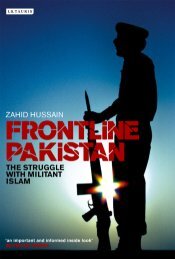US-Pakistan Relations: The Way Forward - Arz-e-Pak
US-Pakistan Relations: The Way Forward - Arz-e-Pak
US-Pakistan Relations: The Way Forward - Arz-e-Pak
Create successful ePaper yourself
Turn your PDF publications into a flip-book with our unique Google optimized e-Paper software.
marked that the United States had lost a relationship with a complete generationof <strong><strong>Pak</strong>istan</strong>i military officers due to the Pressler sanctions. At that time, hemade a commitment to correcting that mistake. Consequently, literally hundredsof <strong><strong>Pak</strong>istan</strong>i military officers have interacted and trained with their <strong>US</strong>counterparts over the past five years. Certainly, the training of <strong><strong>Pak</strong>istan</strong>i militarypersonnel with the <strong>US</strong> military should be maintained, however, there areareas for improvement: Operations against terrorists are more successful when conductedby means of timely information sharing between <strong>US</strong> and <strong><strong>Pak</strong>istan</strong>i agencies;while still respecting one another’s sovereignty and values. Many of the topleaders of al Qaeda have been captured or killed by <strong><strong>Pak</strong>istan</strong>i security forcesor law enforcement agencies based on information provided by <strong>US</strong> intelligence.Conversely, on some occasions <strong>US</strong> forces have acted unilaterally inside<strong><strong>Pak</strong>istan</strong>i territory. <strong>The</strong>se incidents, which have mostly failed to achievetheir intended objectives, often produced civilian casualties and loss of propertyresulting in intense politico-diplomatic backlashes. For example, on 13January 2006, 13 innocent people (3 men, 5 women, and 5 children) werekilled in four houses in <strong><strong>Pak</strong>istan</strong> by a <strong>US</strong> air or missile attack. 31 Besides theloss of innocent lives, the incident resulted in a diplomatic rebuke by the <strong><strong>Pak</strong>istan</strong>government, public unrest in <strong><strong>Pak</strong>istan</strong>, and a plethora of problems for<strong><strong>Pak</strong>istan</strong>i security forces operating in the area. America should not act unilaterallywith disregard for the territorial integrity of an ally; violation of sovereigntydoes not serve the long-term interests of either nation. Further, suchacts have a negligible impact on the easily replaceable leadership of al Qaeda.Information-sharing has produced the best results and should be relied uponin the future. <strong>The</strong> United States needs to provide <strong><strong>Pak</strong>istan</strong> forces with technologicallyadvanced equipment—including sensors, surveillance and acquisitionmeans, telecommunication equipment, and unmanned aerial vehicles formonitoring movements and conducting search and destroy missions in theborder areas. Through active socioeconomic measures, <strong><strong>Pak</strong>istan</strong> needs to bringits tribal areas into the mainstream of the national political structure, therebyeliminating terrorist sanctuaries. <strong>The</strong> <strong>US</strong> government and NGOs can providemuch needed financial and technological assistance to <strong><strong>Pak</strong>istan</strong> in an effort tobolster regional economies. <strong><strong>Pak</strong>istan</strong> can enhance jointness among its military services, benefitingfrom the rich <strong>US</strong> experience. <strong>The</strong> <strong>US</strong> could, on a limited basis, allow the licensed production of<strong>US</strong> military equipment in <strong><strong>Pak</strong>istan</strong>.100 Parameters













